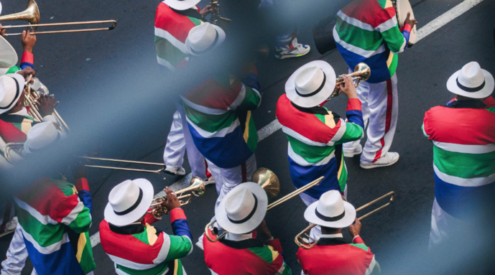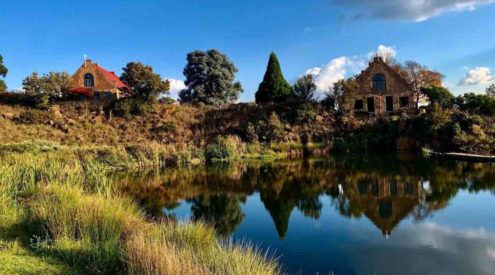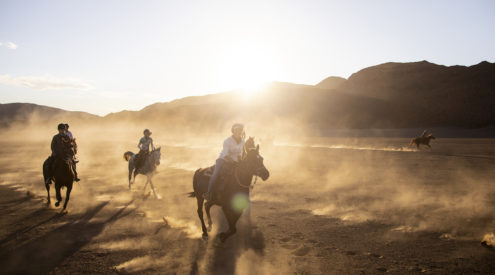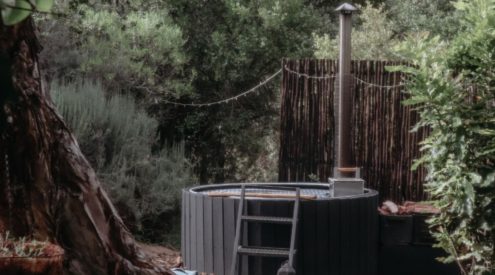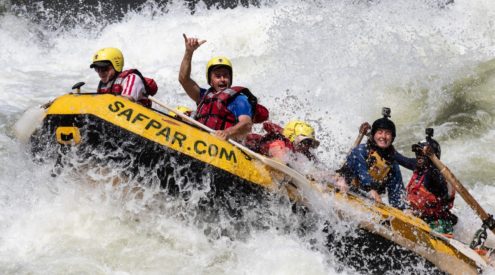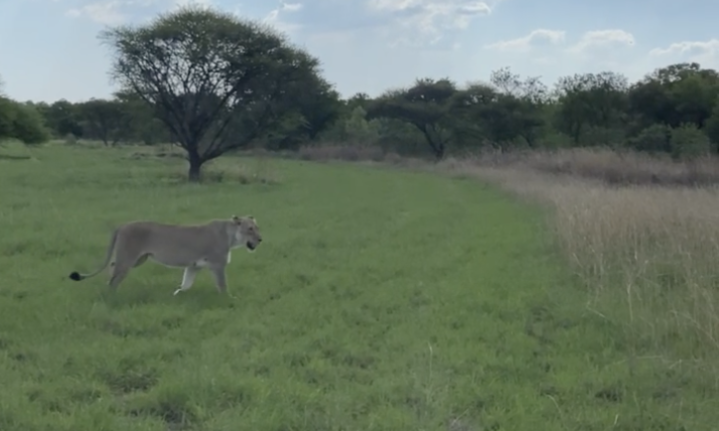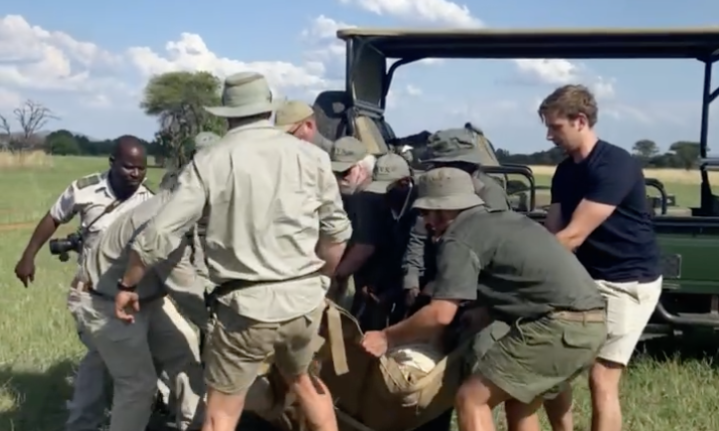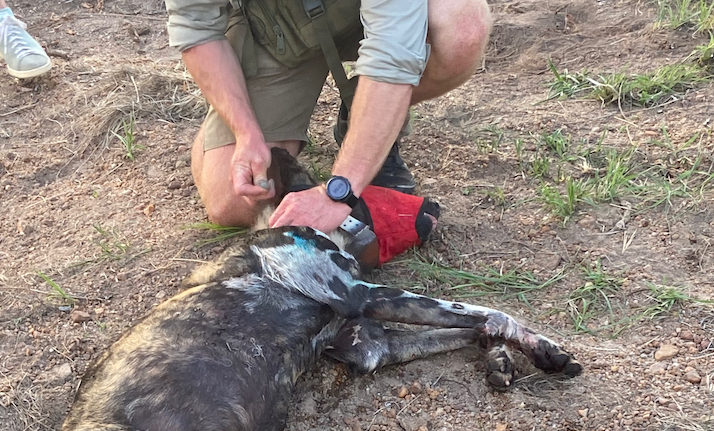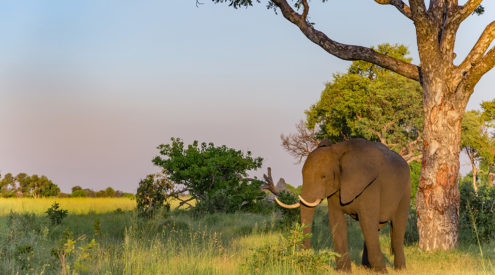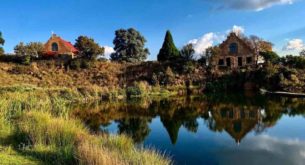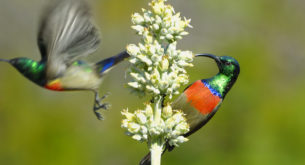Animal collaring can play an important role in conservation. Ecologists track animal movements and behaviours, and ensure the animals stay safely within their reserves. Collaring a wild animal takes precision, strategy, and a whole lot of patience.
READ: Behind the scenes of an elephant collaring
For humane reasons, a collar cannot be more than 2% of the animal’s body weight and generally last about five years before needing to be replaced.
I was fortunate enough to be part of not one but two collarings while staying at the wildly luxurious Safari Plains, in the Greater Mabula Reserve. A male lion and a wild dog both needed new collars.
Andy Fraser of the Rooiberg Wildlife Vets conducted both procedures. He assists in most of Mabula Game Reserve’s management operations, so he is familiar with the reserve, the rangers, and the animals.
Before we embarked in our 4×4 game vehicles, he gave us our briefing: ‘stay quiet and calm, don’t wander, and don’t step on the lion’s tail.’
Lion collaring
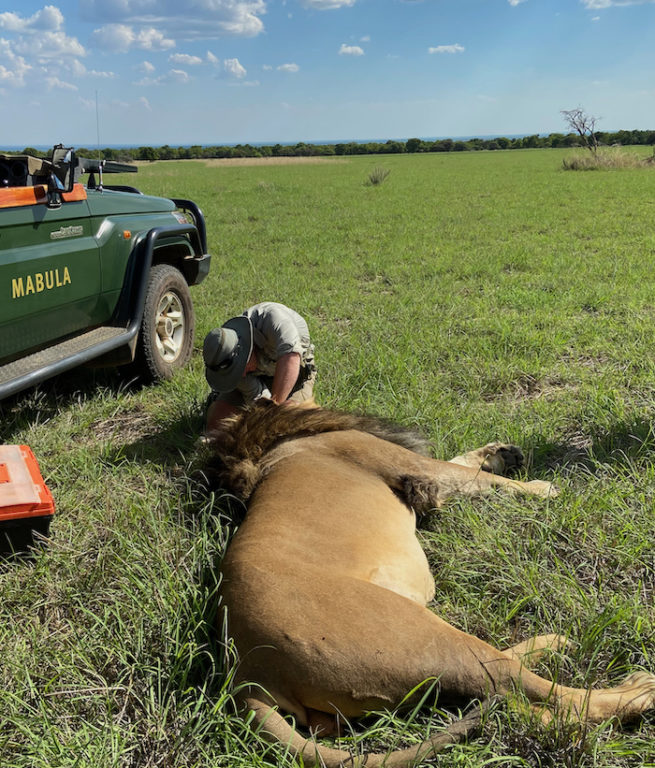
The rangers located the pride and lured them to an open field by strapping a zebra carcass to a bakkie. Once the male lion was in range, Fraser was able to dart him with a dart gun.
The anesthetic lasts about an hour, so as soon as the male was darted, the bakkie drove off with the carcass and lionesses in tow. The rest of the pride were taken a safe distance away, and two rangers stood guard to ensure they stayed away.
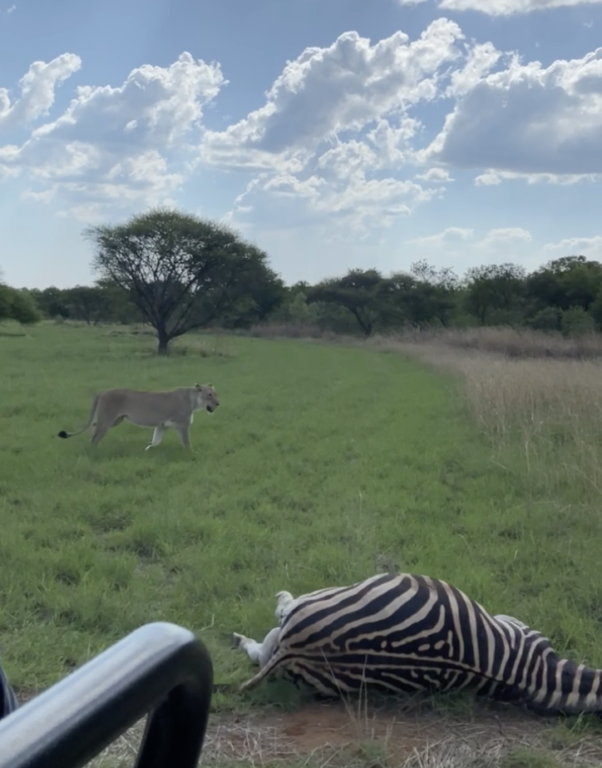
Fraser gently poked the sleeping lion with a stick to ensure the drugs had taken effect and then gave us permission to hop out of the game vehicles.
The old collar was removed and replaced with the new one. While he had the lion under anesthetics, Fraser allowed some of the media team to administer its vaccinations. He treated the lion for ticks and then got the whole management team and a few of the media team to lift the big cat onto the scale. The 4-year-old cat weighed a whopping 238 kg, and he is almost fully grown.

We were allowed to stroke his mane, fur, and even his rough tongue before Fraser administered the reversal drug to wake the cat up.
The reversal drug works fast, and within minutes the lion was trying to stand up on wobbly legs. The vet monitored him until he had ambled back to his pride and his zebra treat.
Reserve manager, Ivan Kilian, was very happy with the event and said that the lion population at Mabula is stable, with an excellent dynamic, within this pride particularly.

Wild dog collaring
With only approximately 6 600 wild dogs left in the world, being able to get up close and personal with one was an incredible privilege.
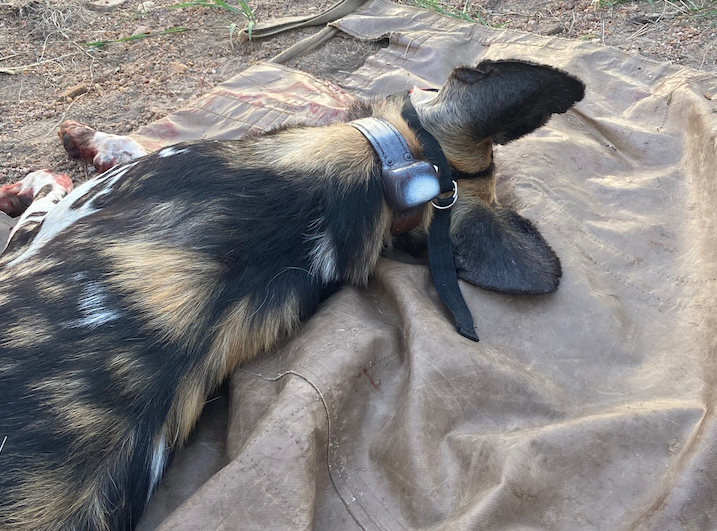
The wild dogs of Mabula are cause for celebration: Two male dogs travelled over 350 km from Northern Limpopo of their own accord and chose to settle in Mabula. Two suitable females were chosen from the Waterberg pack and introduced to the males through a mediated bonding process. There have subsequently been multiple litters of pups born on the reserve.
READ: New pack of African wild dogs released into Mabula Game Reserve
Unfortunately for vet Andy Fraser, wild dogs are skittish and suspicious of humans. An impala carcass was tied to a tree close to the road, but it took time and patience before the dogs ventured close enough to the carcass for Fraser to dart his target. The first dart was ineffective as the dog got his heart rate up and the drug bled out.
The second shot was a success and the rangers were able to carry him to an open space for the vet to work. The dog needed a new collar as his current one was faulty. The vet also used the time to vaccinate the dog and take DNA samples.
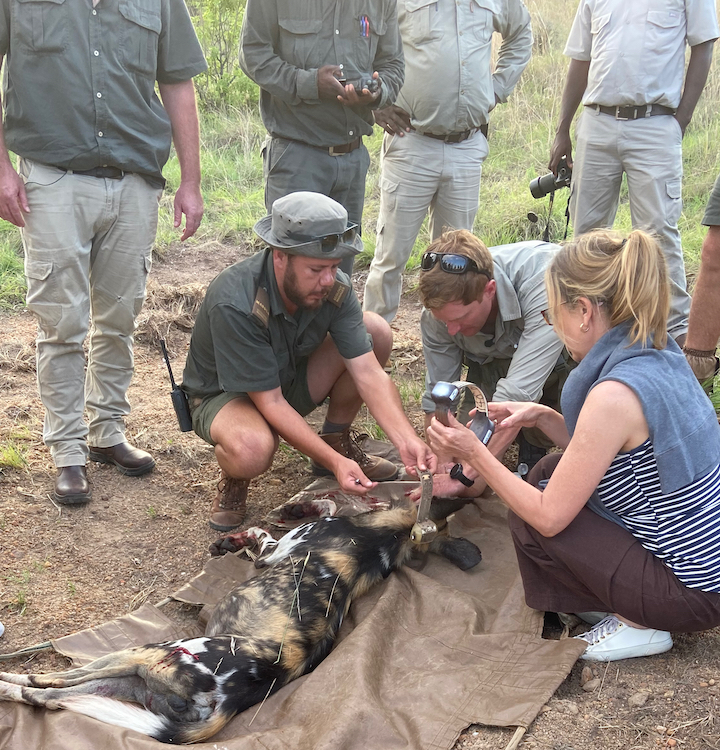
Wild dogs pant to cool down, but as the dog was under anesthetic he was unable to bring his own body temperature back to normal. The vet placed ice packs on his body until he was happy with the dog’s temperature reading. He then administered the reversal drug.
The dog woke up and recovered from the procedure slowly, and his pack watched him protectively from a distance until he was able to join them again. Fraser said that he was pleased with the dog’s condition and that the Mabula pack would add great diversity to and fill a vacant niche in the 125 square kilometre reserve.
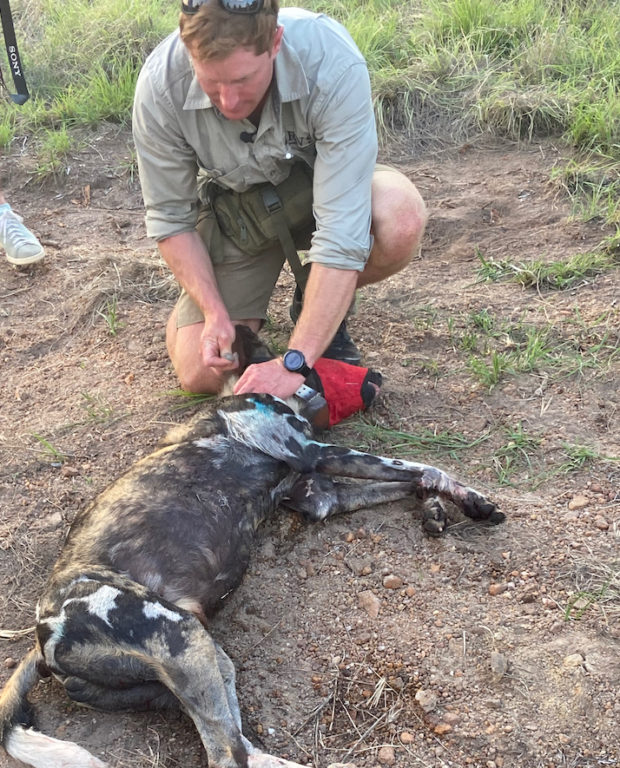
Safari Plains
Safari Plains is a 5-star luxury tented camp, a two-hour drive outside of Johannesburg. Situated in the Greater Mabula Area in the Waterberg, it’s perfect for nature lovers and wildlife enthusiasts.
The common area has tall ceilings, an impressive bar, and neutral tones with pops of colour and the outside area is perfect for lazing around on a sunlounger by their lap pool. Our tents were 5-star in every sense of the word; the bed beckoned you to dive into it, and the sunken bath with a private bush view had my name written all over it.

Picture: Safari Plains
They serve delicious meals, and the bar is always open for you to grab creative cocktails or a much-needed glass of water. Indulge in a spa treatment or join in for an early morning game drive, where you have the chance of seeing the Big 5.
This opportunity was something I’ll never forget. What made it extraordinary, however, was the dedicated team who made sure we always had a drink in hand, shared their in-depth knowledge of South African wildlife, and ensured our safety and comfort the whole time. Their passion for what they do is evident in how they care for their animals and the area around them.
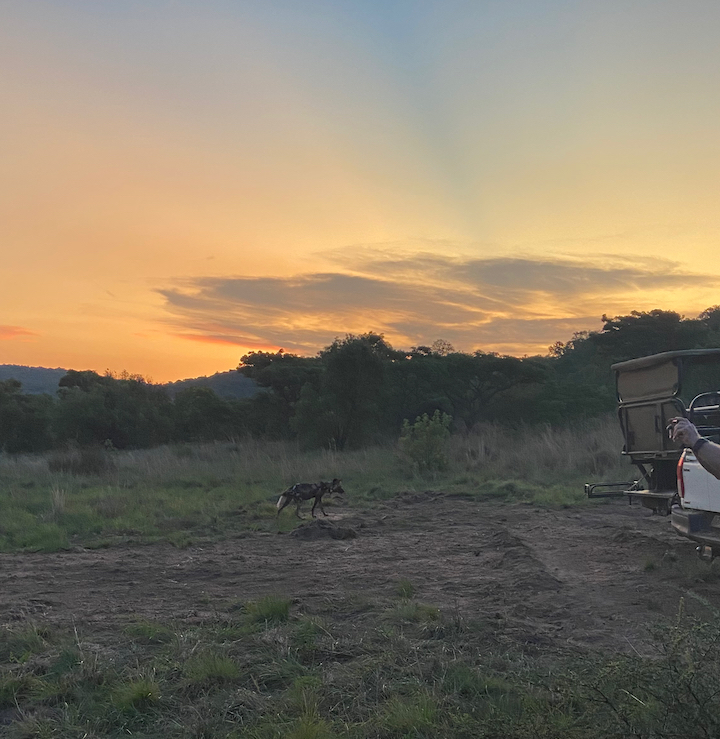
- Location: Rooiberg Road, Bela Bela
- Cost: From R5 207 p p s (Safari tent)
- Contact: [email protected]
- Website: safariplains.co.za
Pictures: Jordyn Johnson
Follow us on social media for more travel news, inspiration, and guides. You can also tag us to be featured.
TikTok | Instagram | Facebook | Twitter
ALSO READ: Unsung heroes: Meet the power team behind African Wildlife Vets

